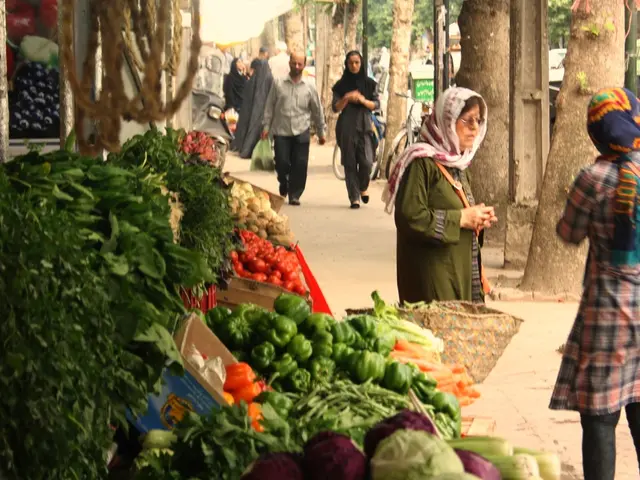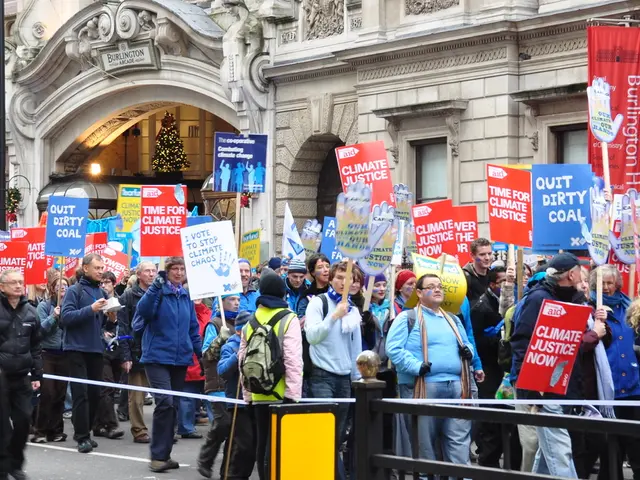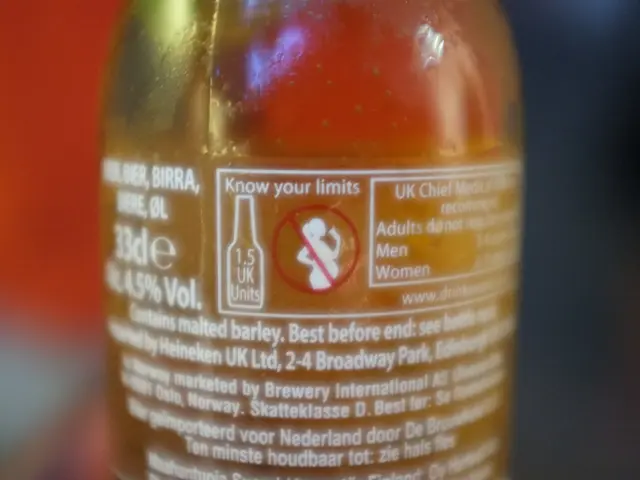Warning: The Following Content Discusses Heat-Related Health Issues and Climate Crisis Impacts, Potentially Affecting Children and Vulnerable Populations
Municipal leaders urged to implement heat safety measures - Municipal Leaders Advised to Take Precautions Against Extreme Heat by Medical Professionals' Association president
Gerald Quitterer, president of the Bavarian Medical Association, is sounding the alarm on heat protection measures in municipalities across Germany. In an interview with the "Augsburger Allgemeine," he stressed the disastrous impact of heatwaves on public health, "Heat might be the most significant climate-related health hazard we're facing here in Germany."
Don't underestimate heat waves' damaging effects, especially on vulnerable groups, warned Quitterer. This includes elderly individuals, pregnant women, outdoor workers, children, and adolescents. The studies suggest that prolonged exposure to heat can exacerbate pre-existing health conditions and even trigger serious mental health concerns such as anxiety, depression, and post-traumatic stress disorders.
Speaking about the risks for children, Quitterer pointed out that they are particularly susceptible to heat-related illnesses, citing instances of youngsters suffering from headaches, dizziness, and vomiting following outdoor sports events in the heat. In fact, children's risk of heat-related illnesses is up to nine times higher than adults.
Quitterer stressed the importance of implementing model heat protection plans at the federal, state, and municipal levels. He proposed creating shaded areas, designating cool spaces, and increasing greenery as essential steps towards preventing heat-related health issues. "No one needs to sacrifice their summer fun, but it's crucial we as a society recognize the hidden dangers of heat," declared the medical association president.
Here are some general heat protection tips for children:
- Stay Hydrated: Encourage your child to drink plenty of water to maintain proper hydration.
- Natural Cooling: Use fans, air conditioning, or cool baths to help lower their body temperature.
- Restrict Outdoor Activities: Limit outdoor activities during the hottest parts of the day, typically between 11 am and 3 pm.
- Dress for the Weather: Dress your child in light, loose-fitting clothes that allow for good airflow.
- Find Shade: Keep your child in a shaded area whenever they're outdoors.
- Watch for Signs of Heat Exhaustion or Heat Stroke: Keep a close eye on your child for any symptoms that could indicate dehydration or heat-related distress, such as headaches, dizziness, nausea, or excessive sweating.
On a larger scale, organizations like the Environmental Health Center at Helmholtz Munich are striving to better understand and alleviate environmental health risks, including those related to heat[1]. The German Strategy for Adaptation to Climate Change emphasizes structural measures to protect human health from heat in various facilities[5]. Furthermore, the Saxon Medical Conference called on the healthcare sector to prioritize heat protection initiatives[3].
It's essential to consult the Bavarian Medical Association's official resources for their latest recommendations and guidance on heat protection measures for children in the context of the climate crisis.
- The Bavarian Medical Association president, Gerald Quitterer, emphasized the importance of implementing community policies focusing on heat protection, particularly in light of the alarming connection between heatwaves and health risks, as heat might be the most significant climate-related health hazard in Germany.
- In addressing the risks associated with heat exposure for children, Quitterer highlighted their increased vulnerability to heat-related illnesses, citing instances where youngsters experienced symptoms like headaches, dizziness, and vomiting after outdoor sports events during heat waves.
- As a preventative measure, Quitterer proposed implementing heat protection plans at various levels, which may include creating shaded areas, designating cool spaces, and increasing greenery in an effort to mitigate heat-related health issues and ensure safety within the community.








